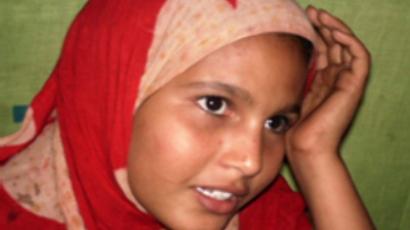Arrest warrant issued for Sudan’s President
The International Criminal Court (ICC) has issued an arrest warrant for Sudan's president on charges of alleged atrocities in Darfur.
Omar Al-Bashir faces charges of five counts of crimes against humanity and two of war crimes. Charges of genocide were dropped due to insufficient evidence. President Al-Bashir denies the charges.
Sudan’s Ambassador to Russia, Sirajuddin Hamid Yousuf, says the court's decision cannot be enforced.
“Sudan had clearly stated that it’s not concerned with any warrant or decision issued by the ICC,” he said. “That’s based on the legal position of Sudan. Sudan is not a party to the UN convention of 1998 and therefore is not bound by any decision issued by anybody established by the Rome Statute.”
On Tuesday, before the court's decision was issued, the 65-year-old Al-Bashir said he would dismiss the warrant as worthless. “Any decision by the International Criminal Court has no value for us. It will not be worth the ink it is written in,” he said.
Shortly after the court's announcement, Sudanese officials said Khartoum would not recognise the ICC's jurisdiction, and suggested the court's decision was linked to an effort to destabilise Sudan.
ICC Chief Prosecutor Luis Moreno-Ocampo, who filed charges against al-Bashir in July last year, said he had 30 witnesses who were ready to testify to the court on the Sudanese leader's actions which he said were aimed at annihilating three African tribes in Darfur – the Fur, Masalit and Zaghawa.
According to the UN, more than 300,000 people have been killed in Darfur. Around 2.7 million have fled their homes since 2003 when the conflict began.
A spokesperson for the court said it was the first ever warrant against an incumbent head of state.
A UN statement said: “The United Nations will continue to conduct its vital peacekeeping, humanitarian, human rights and development operations and activities in Sudan. The Secretary-General calls on the Government of Sudan to continue to cooperate fully with all UN entities and their implementing partners, while fulfilling its obligation to ensure the safety and security of the civilian population, UN personnel and property, and that of its implementing partners.”
Some states, including China and Russia, have expressed concern that the warrant could undermine recent progress in international efforts to broker peace in Darfur.
Mikhail Margelov, Russia’s presidential envoy to Sudan, said the ICC’s decision “sets a dangerous precedent in international relations” and “could hamper international aid efforts in Sudan bringing the country to the brink of a humanitarian catastrophe.”
In the Sudanese capital, Khartoum, thousands of Al-Bashir supporters have been protesting against the ICC’s decision.













